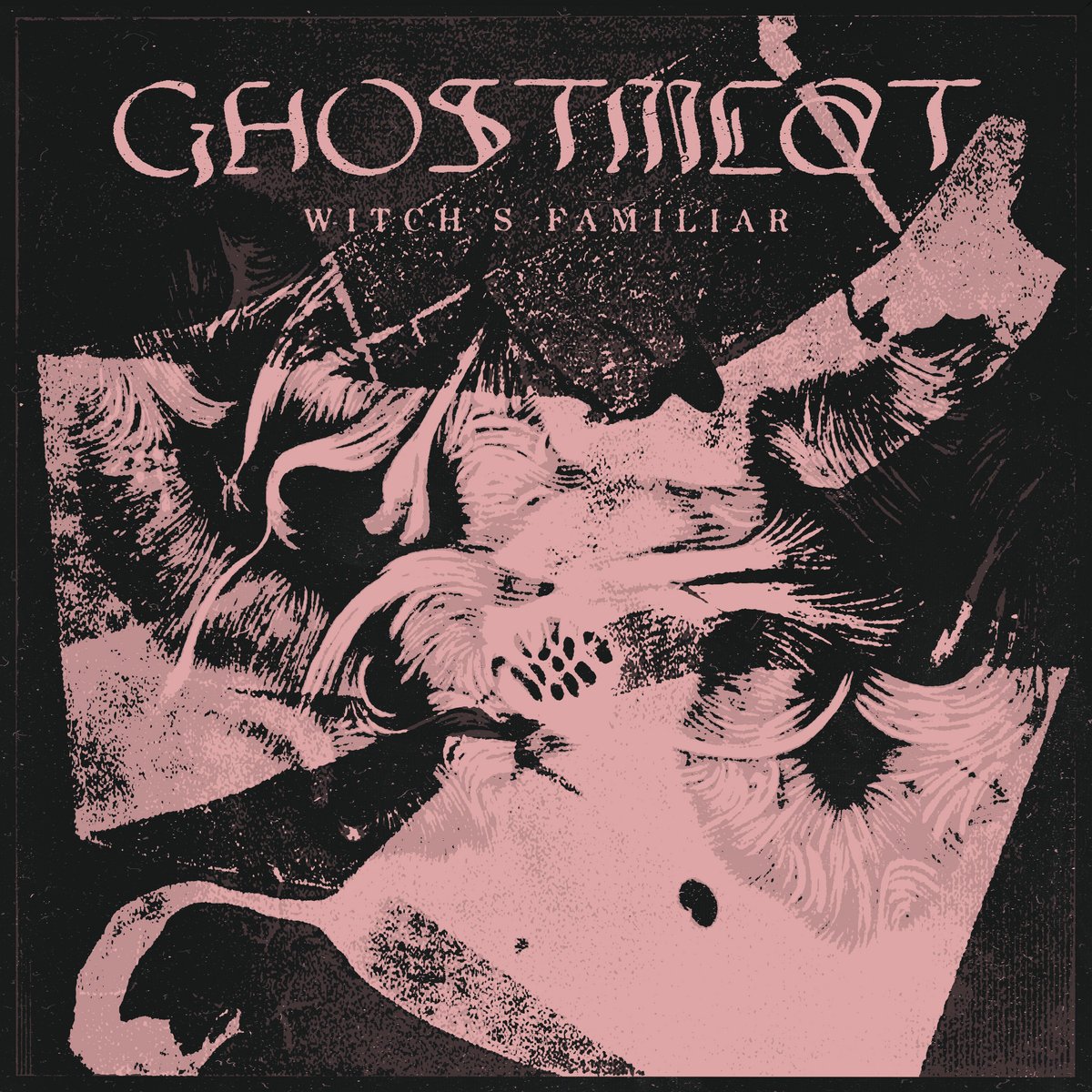Afternoon Bike Ride, Elizabeth Shepherd, and Ghostmeat
Afternoon Bike Ride
Glossover // Courage Records
Montreal based trio ‘Afternoon Bike Ride’ dropped their third album Glossover last month. For the band, it is a project built on a foundation of cohesion and unity, completing their project in a cabin in St Donat, Quebec. It’s an album that touches on familiar aches – harmonies captivating enough to draw on old memories with gentle melodies to soften the blow. You feel simultaneously safe and moved listening to Glossover. Afternoon Bike Ride consists of members Lia (on vocals/guitar/programming), David (vocals/guitar/drums/programming), and Eloi (vocals/keys/drums/programming). There’s a wonderful contrast of heavy lyricism set against a sonically airy backdrop. ‘For the Breakdowns’ is a one example: an initial listen evokes memories of sunnier days and afternoons spent sprawled on the grass. Lyrically, the song tells a different story, with lines like ‘Hiding under eager eyes I’m honing in/On understanding why my spine's so tense/It’s held my heavy heart up through the cold […]With in divine, in divinity…” The contrast in sound and story in tandem with the dreamy shoe-gaze nature of the band will captivate any listener.
An important component to music once it’s released into the ether is the question of whether or not the music can find an audience. Can this record move a listener? Can the messages evoke a response, regardless of how obscure some of the messages may appear? Can this album stand on its own two feet if it didn’t find an audience? I believe for Glossover, it absolutely can stand on its own– it has the power to reach its audience and evoke an emotional response. At the same time, if the population of all Music Listeners were to suddenly decline and the world was only left with the remnants of what categorized ‘Music’, just the sheer existence of an album like Glossover would be enough. With an album as tender as Glossover, emotional work went into crafting the finished story and as countless plays, albums, books, articles etc. have proven over the course of time: stories live forever. One example for this is the reflective ‘Nothing in Particular’. Vocalist Lia writes, “This song explores mixed up emotions about caretaking for my dad, where on the one hand all I want to do is spend time with him and cherish where he’s at and on the other hand it’s challenging my sense of self as someone in my twenties who shouldn’t have to be burdened with this responsibility. There’s an element of guilt for any resentment that I feel which is why the song starts with “I’d never want to make you feel I’m haunted by what I have to do to keep you well.” It’s also nostalgic for how we used to spend time together goofing around, exploring, having interesting conversations on life and the state of the world. I’m in a cycle of frustration and grief, one leading into the other leading into the other.” At the core, ‘Nothing in Particular’ is a human moment that we all experience in various forms. We wrestle and grapple with the unfair on a daily basis. Some days are easy and light – we think back to our childhoods and those we spent all that time shaping our worldviews on. It’s the good moments that ripple back as we tear through the wave of lingering memories. Those are the precious times. The airy effect of the sound design within the album helps build that safe and warm mood. However, as the track plays, there are some uncomfortable feelings that need to be dealt with – sometimes in the midst of the most unfair and painful experiences. Grief and guilt. Resentment. Doubt. ‘Nothing in Particular’ toes the line between that safe space of ‘I’m happy! Life is good’ and moments of frustration that seem to lurk around the corner. It’s a tune that carries a heavy, confessional tone under a comforting blanket of soft melodies. Overall, it’s a fantastic space in exploring the complexities that exist within all of us – in part, I believe this is in part why this track has such a magnetic draw. It’s raw emotion in musical format.
In that hypothetical scenario of the Death of the Music Listener, Glossover’s existence would be an homage to why music is so important. It’s an homage to the complexities that make up humans. It’s an homage to life, love, and loss. Sometimes hurtful and at other intervals, the album is a blissful daze into specific sensations that will carry you throughout its 14 songs.
- Josalynn Lawrence
Elizabeth Shepherd
Three Things // Pinwheel Music
Elizabeth Shepherd calls her new disk Three Things a “Frankenstein album.” It’s a metaphor that is simultaneously apt and completely inaccurate. The aptness of the metaphor comes from the recording process, where Shepherd took the imposition of COVID lockdowns in her Quebec home as a prompt. She took a week’s worth of recordings with Danish bassist Jasper Holby and used her creativity and musical skills to sample, edit, and add layers. Then Shepherd took those tracks and sent them to musician friends to add their parts.
Where the metaphor falls apart is when one considers the film portrayal of Frankenstein’s monster. Karloff et al play the monster as a shambling, ugly brute (Mary Shelley’s original portrayal of the monster is far more verbose and erudite); Three Things is anything but monstrous.
Three Things is also not a record that Shepherd fans expecting the jazz that lands her the most Spotify numbers will necessarily greet with surprise. Shepherd’s taken her considerable vocal and writing skills here and gone all the way into a maelstrom of funk, sampling, and groove. There’s enough rhythm in this record to make the most uptight WASP get a little loose-hipped (don’t ask me how I know this is true). Shepherd and her collaborators play with complex rhythms and meters but keep the groove so solid that you can stay with it without losing the one.
The songs are impressionistic rather than narrative; my sense here is that Shepherd isn’t writing diary entries but putting into music powerful emotional moments, which fits well with the rubato nature of the songs. If you’re looking for conventionally-structured pop songs – verse / chorus / verse / chorus / solo / fade – you are going to be disappointed by Three Things. The songs here are far more exploratory, free, and have the feel of improvisation even if the recording process would have prevented true jams among the musicians.
The playing is superb here, with some great judgement in how and when to demonstrate virtuosity, and what instrument to be virtuosic on: for such a beat and sample-drenched record, alto horns, banjos, and ukuleles make unexpected appearances.
For an album with such a complicated and disjointed creation, Three Things is a remarkably cohesive and unified work. My only concern with it is that given the slickness and smoothness of the songs, people will be tempted to use it as background music. If they do, they will miss out on some serious depth in the writing and playing that went into it.
Shepherd says the title track of Three Things was inspired by the Biblical passage that goes “And now these three remain: faith, hope and love. But the greatest of these is love.” Having listened to the album as both foreground and background music, I will take that quote and paraphrase it: “These three remain: instrumentation, structure, and groove. But the greatest of these is groove.”
- Bob LeDrew.
Ghostmeat
Witch’s Familiar // Self-Released
There is something about an album that has five songs, but is long enough to still be considered an LP, that just feels instantly classic. In the world of psyche rock, paying homage to the classics that came before seems to be one of the few prerequisites to this cherished and heavily walked genre. That being said, psyche rock does not simply remain in the 60’s. There are plenty of modern bands keeping that sound alive such as The Brian Jonestown Massacre, Ty Segall, Thee Oh Sees and the aptly named King Gizzard and the Lizard Wizard to name a few. It is no easy task to count yourself as remarkable in the psyche world, however Witches Familiar by Vancouver psyche syndicate Ghostmeat, is a perfect example of how modern albums with classic sounds should be made.
It is rife with heavy reverb and delayed out guitars, mixed with spacey and fuzzy synthesizers. The rhythm of each track feeling slow, heavy and sludgy, this album is in no hurry to burn through itself. True to the genre the vocals invoke more ethereal feelings of loss, death, and love and helps to transport us from track to track. The way each song flows together is exceptionally highlighted with the tracks “Death Song From The Poplars” and how in true Pink Floyd form, seamlessly transition into the next track “Kisse Manitou Wayo”. The album really hinges itself on the latter track which roughly translates to almighty voice, a reference to the late 19th century Cree bandit and hero of the same name. It forms an epic journey with terrific performances from everyone in the band.
No one element in particular sticks out, instead everything works perfectly together to provide the listener with something massively atmospheric. Ghostmeat is an extremely tight band, each working to serve the material as opposed to themselves or their own musical prowess. The band features members from former Vancouver band Basketball as well as having the accomplished talent of folk Canadiana artist Ben Rogers. Using all of this experience Ghostmeat is able to create one of the more powerful and thoughtful rock albums so far this year in Vancouver and quite possibly Canada.
Achieving such a classic sound is a very difficult thing to do. It is usually an expensive and painstaking process that can only be described as a labor of love. Producing something that feels classic but features your own unique vibe is something that many artists get wrong. Bands such as Ghostmeat that can tow that line, and still satisfy the modern ear should be cherished and revered for keeping the beloved sound of psyche rock thriving and relevant.
- Nigel Young



